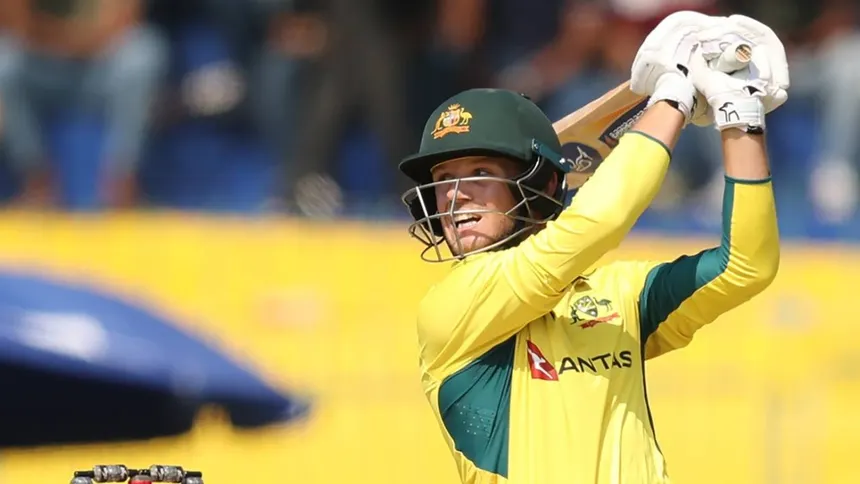
Jake Fraser-McGurk’s return to the Australian T20I setup was meant to be a fresh chance—an opportunity to prove himself on the international stage after being recalled as injury cover. Instead, his brief stay at the crease, scoring just 2 runs from 7 deliveries, has reignited scrutiny over his place in the squad, prompting questions about whether raw potential alone is enough to justify continued selection at the top level.
Fraser-McGurk’s dismissal was neither unfortunate nor controversial—it was tame. A mistimed lofted stroke straight into the hands of mid-off summed up a pattern that has begun to define his recent career: early promise, early exit. This latest failure adds to a string of low scores that now stretch across formats and tournaments. Despite dazzling domestic and IPL performances in 2024, the 23-year-old has not been able to replicate that success consistently in international cricket.
His numbers paint a worrying picture. Since his debut in ODIs and T20Is, Fraser-McGurk has only managed sporadic highlights, with more questions than answers. His IPL 2025 campaign was underwhelming, resulting in his being dropped from the Delhi Capitals’ playing XI after failing to convert starts or contribute meaningfully in the powerplay—a phase where he was once feared for his explosiveness.
Critics have been quick to react. Former players and analysts have pointed out his technical vulnerability against disciplined bowling. While his hand-eye coordination and natural hitting ability are elite, his decision-making and shot selection under pressure are areas that need significant improvement. His repeated dismissals while trying to attack too early have led many to believe he lacks the temperament currently required at the highest level.
Adding to the pressure are emerging names in the Australian circuit. Mitch Owen, for instance, has made a strong impact with both bat and ball in recent appearances, offering Australia a more rounded option. With other young talents knocking on the door and veterans returning from injury, Fraser-McGurk’s grip on a spot in the XI is rapidly weakening.
Despite the criticism, there’s no denying Fraser-McGurk’s raw talent. His ability to take on bowlers from the first ball and change the tempo of a match in a matter of overs makes him a potential game-changer. But selectors are increasingly wary of banking on “potential” without production. In elite sport, promise only holds value if it translates into performance—and that clock is ticking.
Australia’s coaching staff will likely give him one or two more chances to rediscover his rhythm, but the tone has changed. Where once there was excitement, there is now expectation—and that brings a different kind of pressure.
If Fraser-McGurk is to remain in Australia’s long-term T20I plans, he will need to show adaptability, patience, and—most importantly—runs. Another failure could see him slide into the fringes of the squad, replaced by players who are converting their chances while he struggles to find his feet.

